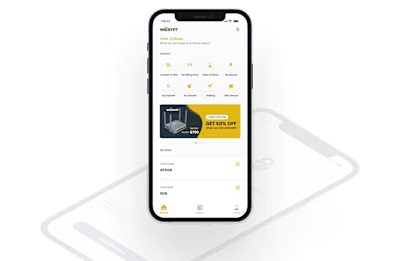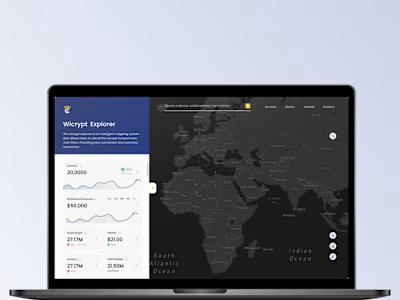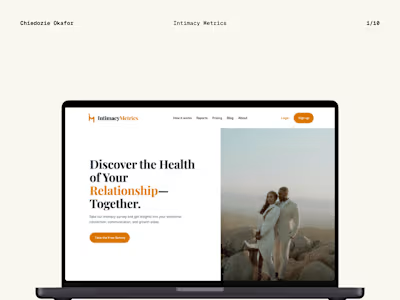Designing Uburu AI for African Health Data Accessibility
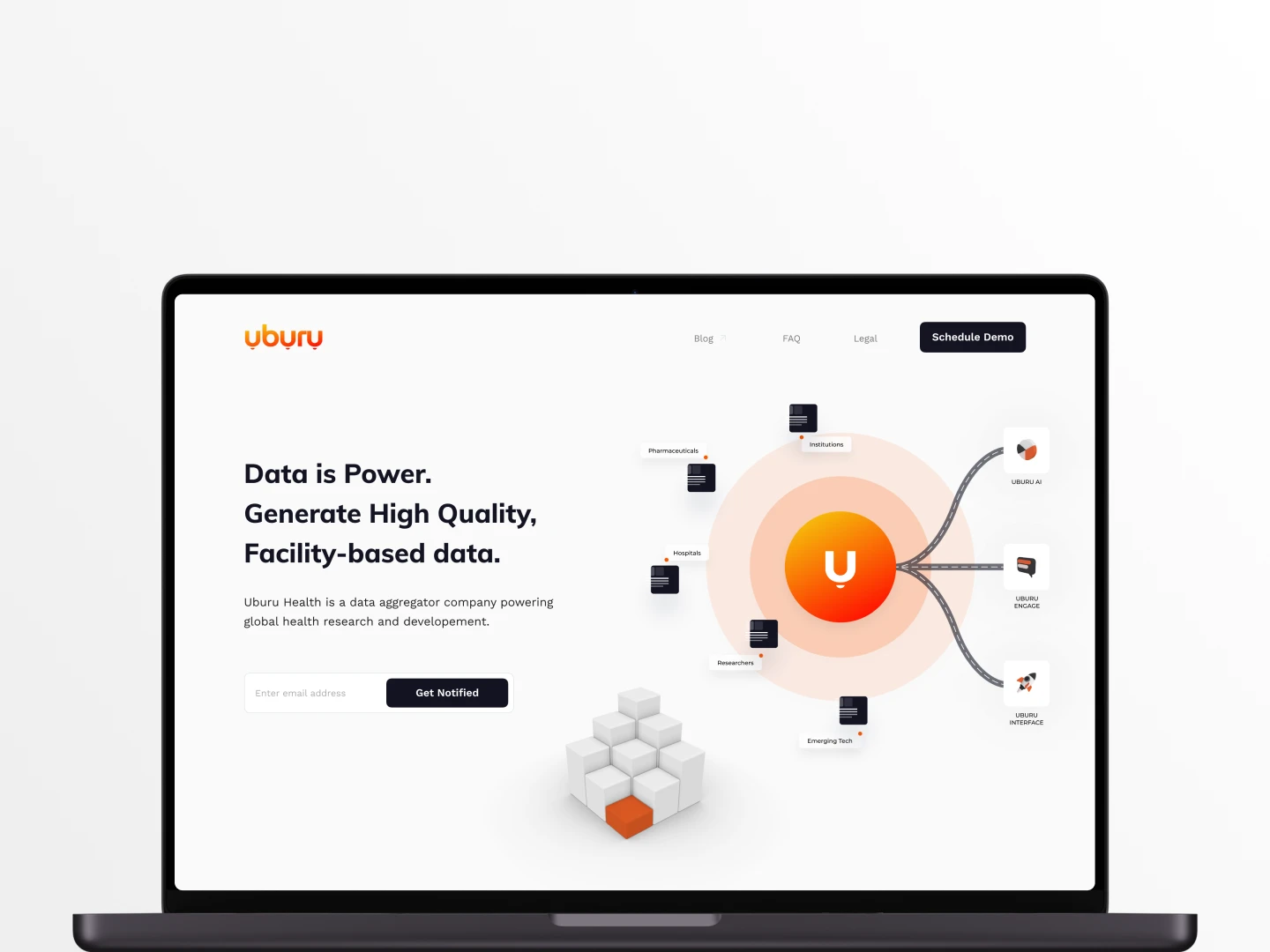
Bridging Data & Research in Health
Designing Uburu AI to Make African Health Data Accessible
Year
2021
Industry
Health
Role
Product Designer
The Story Begins
In 2021, I joined a project that felt close to something bigger than design it was about changing how the world sees African health data.
Across much of Africa, access to healthcare data is either fragmented or simply unavailable. Without that data, governments struggle to plan, and researchers are left making educated guesses. That gap doesn’t just slow down progress it leaves people behind.
Uburu Health was already thinking differently. They envisioned a platform Uburu AI that would help researchers connect directly with healthcare institutions, making health data easier to request, verify, and use. My role? To bring that idea to life through thoughtful, human-centered design.
What We Aimed For
We weren’t just building a dashboard. We wanted to:
Help researchers find the data they need without chasing it physically
Give hospitals control and clarity in how they share data
Lower the cost of data collection and open new doors for global research
Bring more African communities into the global conversation on health
Listening First
Before designing anything, we took time to listen.
We spoke with researchers who told us how much time they spent just trying to get access to basic records. We heard from hospital administrators overwhelmed by manual requests. And we read through logs of how data had been requested in the past sometimes through emails, sometimes not at all.
Those stories shaped everything we designed.
The People We Designed For
Researchers
These are the curious minds academic and medical professionals trying to ask the right questions about health. They needed:
A way to request specific datasets, fast
The ability to choose where the data comes from
A built-in wallet system to manage payments
Institutions
Hospitals that hold valuable health data and are open to sharing it responsibly. Their needs were:
A clear interface to manage requests
The ability to assign requests to trusted clerks
A wallet to receive payments securely
Clerks
Often overlooked, these are the folks inside hospitals doing the actual work uploading files, entering data, keeping things moving. They needed a simple, clean interface to:
Submit existing records
Enter new data accurately
Supervisors
The last checkpoint. These are the institutional gatekeepers ensuring quality and compliance. Their tasks included:
Reviewing every piece of submitted data
Approving or rejecting based on internal standards
Tracking the timing and progress of requests
Designing the System
I focused on making each experience feel tailor-made like it was built for the exact challenges each role faces.
We introduced smart dashboards, role-based flows, and layered in transparency
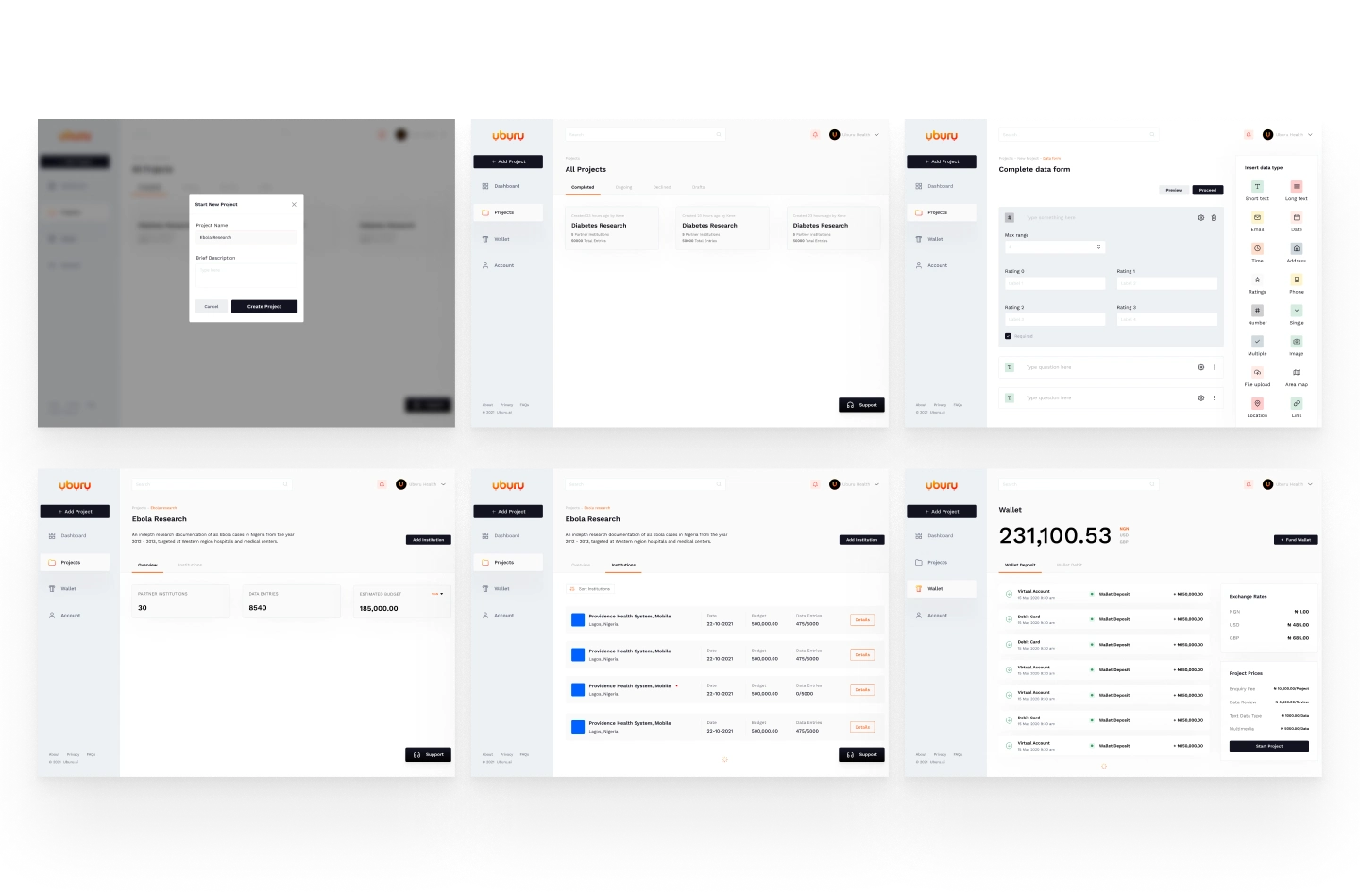
Main Screens for Researchers
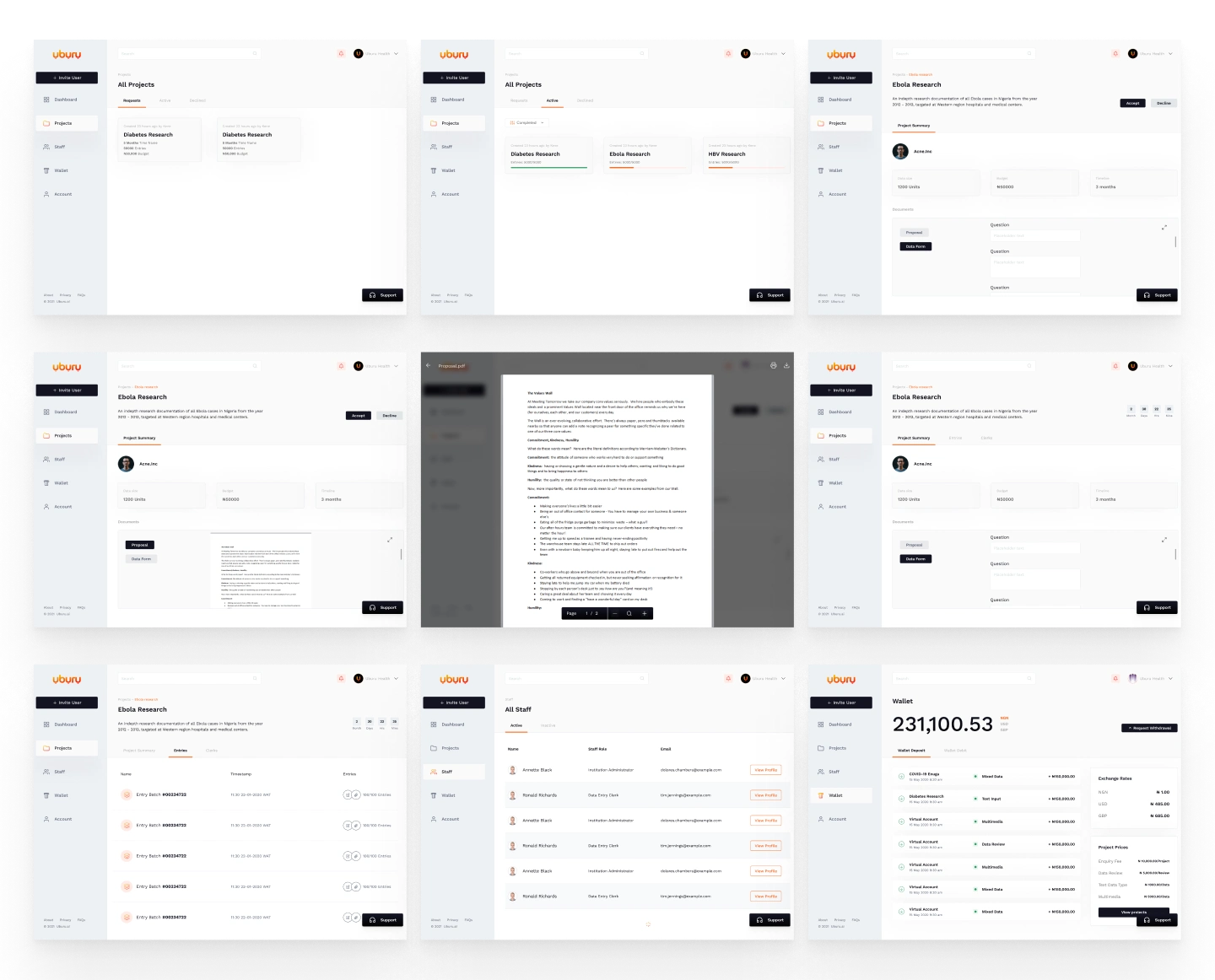
Main Screens for Institutions
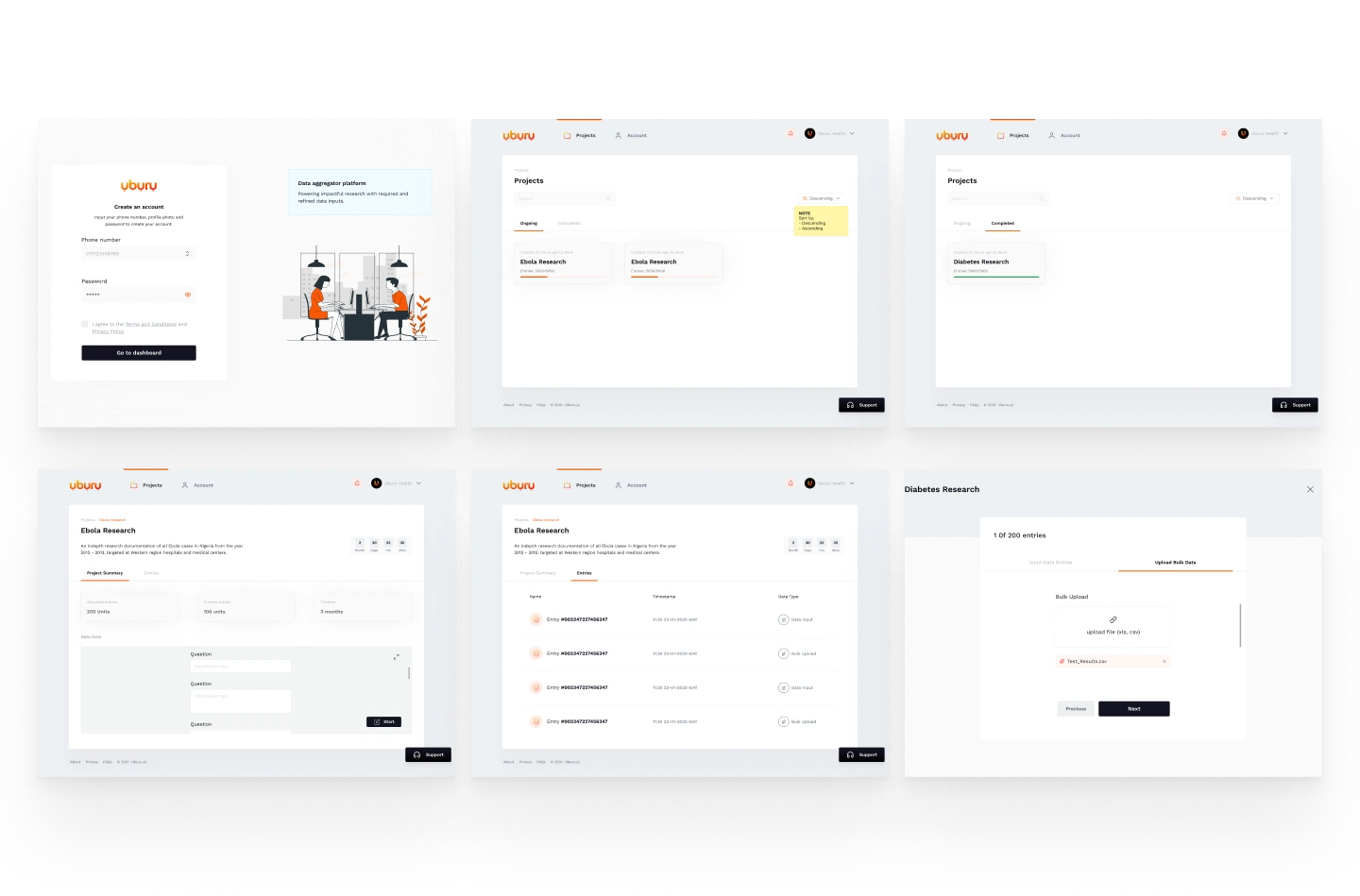
Main Screens for Clerks
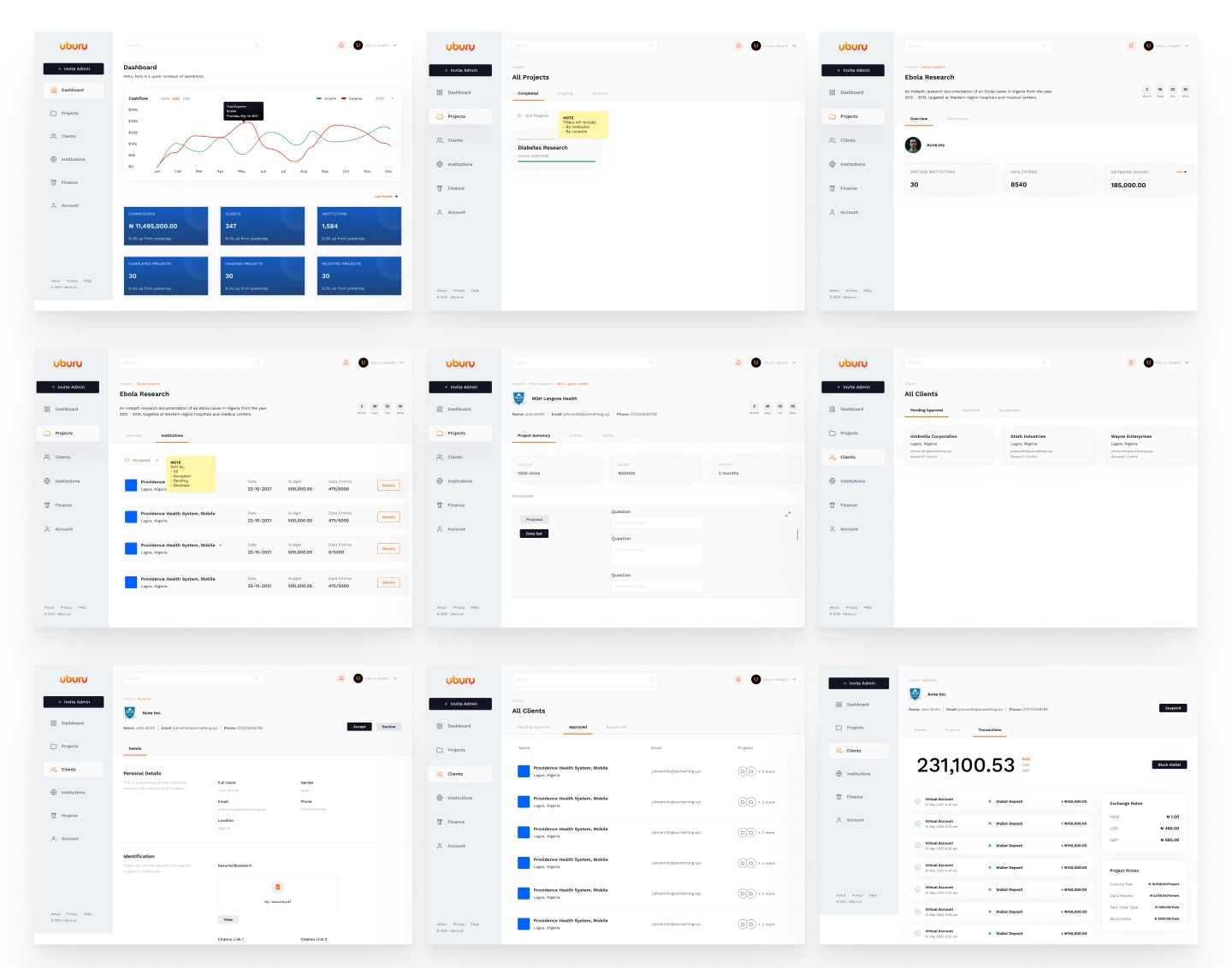
Main Screens for Supervisors
Impact
Since its launch, Uburu AI has started opening up new doors for both researchers and institutions:
Researchers, especially those working with international partners, now have access to hard-to-reach health data from African institutions.
Hospitals and clinics have discovered a new way to contribute to the global research community while generating revenue from anonymized, approved data.
Clerks and supervisors have clearer, streamlined workflows, reducing errors and making their work more visible and appreciated.
Most importantly, it’s becoming easier to include African voices and data in global health conversations and that’s a win for everyone.
What I Learned
This wasn’t just a UX challenge it was a human one.
I saw firsthand how the lack of accessible health data sidelines entire communities from life-saving research. Many African populations are underrepresented not because no one cares, but because collecting and sharing data is often too expensive or too complex.
Designing for this project taught me how powerful interfaces can be when they bridge real-world gaps. And it reminded me that design isn’t just about screens it’s about equity, access, and inclusion.
Like this project
Posted May 20, 2025
We built a system to ease health data access, empower hospitals, cut collection costs, and include African voices in global health research.
Likes
1
Views
23
Timeline
Jan 1, 2021 - Ongoing





